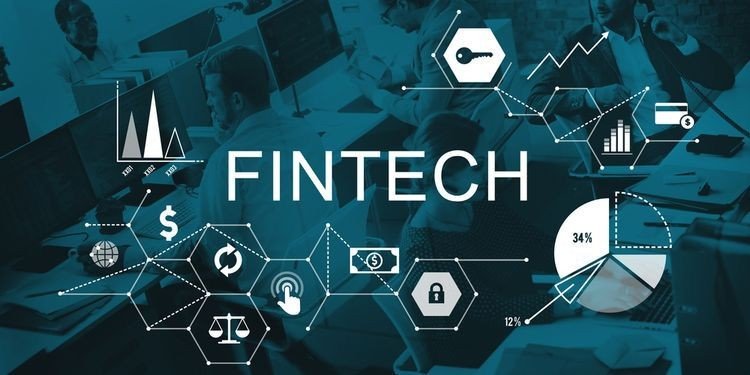Over the last couple of years, financial technology-better known as “fintech”-has grown from a niche industry into a global force that changes how money is managed, moved, and made. From mobile wallets and digital payments to lending platforms and robo-advisors, fintech has empowered both consumers and businesses alike with more convenient, faster ways, often cheaper, of accessing financial services.
Let’s get a little deeper into what, exactly, fintech is, and how it’s replacing traditional banking, which could mean anything for the future of finance.
What is Fintech?
Fin-tech represents a fusion of finance with technology for an upgraded and automated delivery of diverse financial services. Whereas banks and other financial institutions have employed technology for many years, it goes beyond internal systems to develop innovative tools serving consumers and businesses directly. This would also mean making financial processes more efficient, more transparent, and more accessible.
For example, online payment systems like PayPal and mobile phone apps like Venmo allow people to send money to others in a matter of seconds. The same concept applies to crowdfunding P2P lending sites: they give borrowers direct access to investors, excluding the use of banks, therefore allowing elasticity in lending.
How Fintech is Changing the Face of Traditional Banking
The emergence of fintech is definitely giving traditional banks, which have always monopolized the financial industry, a run for their money. This is how fintech is trying to shake things up:
Mobile Banking and Payments: Mobile banking allows people to take care of financial transactions at any time and from any location. Most applications in this category offer banking services without the need for physical branches, making the industry more accessible, especially where physical banks are not in great supply. Mobile payments allow money transfers quite literally in a few seconds: paying off friends for things owed or paying for purchases with just the use of cell phones.
Digital Lending and Credit Services: Most traditional banks maintain cumbersome and prolonged loan processing. Besides this, credit approvals are strictly dependent on the applicant’s credit scores. However, fintech companies adopt some other alternative ways of credit scoring, analyzing a user’s payment history or even social media data to enable more inclusivity into accessing credit. Digital lending platforms hasten the process for loan approval and make access to finance easier for individuals and small businesses.
Robo-Advisors and Investment Apps: Until a few decades ago, investment required huge capital and an exclusive financial advisor. Today, enabled by robo-advisors, one can invest with as little as a few dollars. It will assess an investor’s risk tolerance, goals, and time horizon to develop an investment plan tailored for that particular investor at lower costs compared to traditional ones.
Blockchain and Cryptocurrencies: Some of the most disruptive innovations in finance are blockchain technology and cryptocurrencies. While offering a decentralized and secure method of data storage and transfer, blockchain technology allows for transparent transactions to take place without the involvement of an intermediary. Cryptocurrencies, like Bitcoin and Ethereum, enable peer-to-peer cross-border transactions without going through traditional structures like banking, hence allowing for safe and borderless financial exchange.
Insurtech: The insurance industry has not been an exception to this revolution in fintech. Insurtech makes insurance more affordable and personalized because it uses technology to provide on-demand insurance, such as usage-based car insurance based on how much someone drives and just how safely they drive. This new utilization of insurance is actually making insurance more affordable and relevant to the needs of a particular person.
Why Consumers Are Moving toward Fintech
There are several reasons why consumers are moving toward fintech solutions over traditional banks:
Convenience and Speed: The design of the Fintech applications is to offer convenience, hence rapid and efficient means of financial management. Their users will only have to tap a few times on their smartphone in order to transfer funds, apply for a loan facility, or even invest in stocks without being forced to physically go to any bank or to stand in a big queue.
Cost Savings: The cost can add up when the end refers to any form of conventional banking, from monthly account maintenance fees to charges for withdrawing money from an ATM. Most of the fintech businesses offer accounts without any charged fees or lower charges for transactions, hence keeping financial services much more affordable for each consumer.
Financial Inclusion: Fintech has helped bridge the gap in financial services for unbanked and underbanked populations. Even without access to traditional banking services, people can make digital payments, save money, or access credit through fintech solutions, thus increasing financial inclusion in underserved areas.
Transparency: Most fintech companies believe in transparency; hence, they show fees, interest rates, and terms openly. This transparency helps consumers make informed decisions about their finances, thus building trust with Fin-tech brands.
Challenges Fintech Faces
While fintech has several advantages, it does not also come without its problems. Some of these regulatory and other concerns include the following:
Regulatory Issues: Financial services are one of the most regulated industries to ensure protection for consumers. The fintech companies, more so those in the field of payments, lending, or cryptocurrency, have to deal with complex regulatory environments. This can definitely be a big challenge for such smaller fintech startups that still try to find their foothold somewhere.
Data Security and Privacy: Financial information dealt with by FinTech companies is very sensitive; therefore, data security becomes a number one priority. The customer data needs protection against any breach or unauthorized access. A single breach in data can give quite a setback to the reputation and customer trust for any particular FinTech.
Competition by Traditional Banks: Due to this increasing investment, traditional banks uplift their services through digitization. Although some banks are trying to put up a fair fight through partnerships with fintech firms, the competition is still pretty high.
Customer Trust: As the fintech companies are relatively new, building trust in the customers is a hard task. People still feel that traditional banks can be relied upon as opposed to these fintech companies. They must work extra hard to be able to prove to the people that their services are safe and reliable.
The Future of Fintech and Banking
With fintech continuing to grow, it is going to be even more integrated into the financial sector. Following are a few of the trends that may define the future:
Bank-Fintech Partnerships: Instead of competing, the number of banks that will partner up with a fintech company is likely to increase. This partnership will enable banks to adopt newer technologies faster, while fintech startups get established customers and resources.
More Personalization: Financial technology companies keep collecting data to draw inferences from consumer behavior. Knowledge, thus derived, enables them to offer highly customized financial products, everything from customized loans to personalized investment plans that would increase the users’ satisfaction.
Increasing presence in emerging markets: The best time for Fintech to increase its presence in those emerging markets where the traditional structure of banking is relatively not very strong. The mobile-based financial services allow Fintech to reach out to more people and give access to those who never had access to banking.
AI and Machine Learning: Most definitely, AI and machine learning will find even more relevance in the case of fintech. Because of AI, the financial advice provided through fintech platforms will be even more cogent, more accurate, able to detect fraud in real time, thus offering predictive insights to help consumers make better decisions about their finances.
In brief, through more efficient, affordable, and accessible services, fintech is reshaping the world of finance and challenging traditional banking. Challenges faced include regulatory issues and competition, but the benefits that fintech offers are not so easily overlooked. As this domain keeps on expanding, broadening its horizons day after day, in such a case, it can be said that fintech is going to reshape the way we bank, invest, borrow, and insure. It may, therefore, be hailed as the definitive driver of an inclusive, technology-driven financial future.



